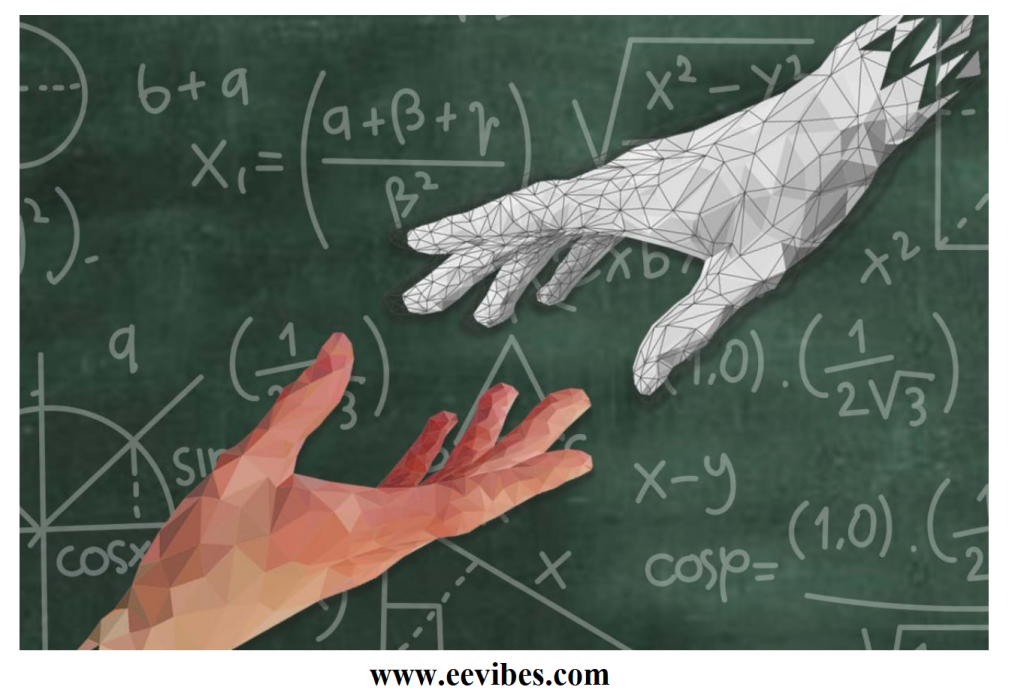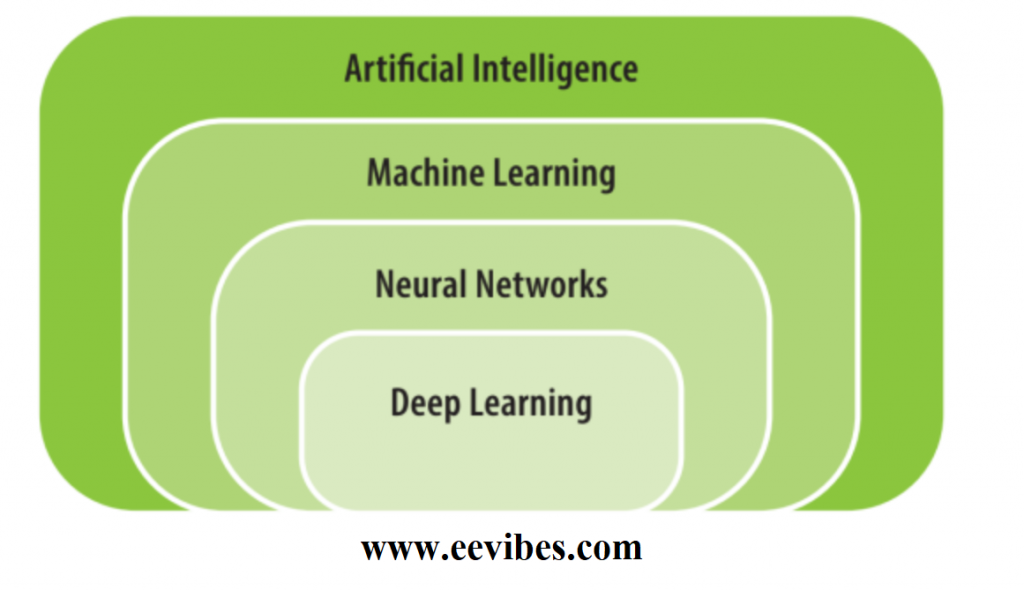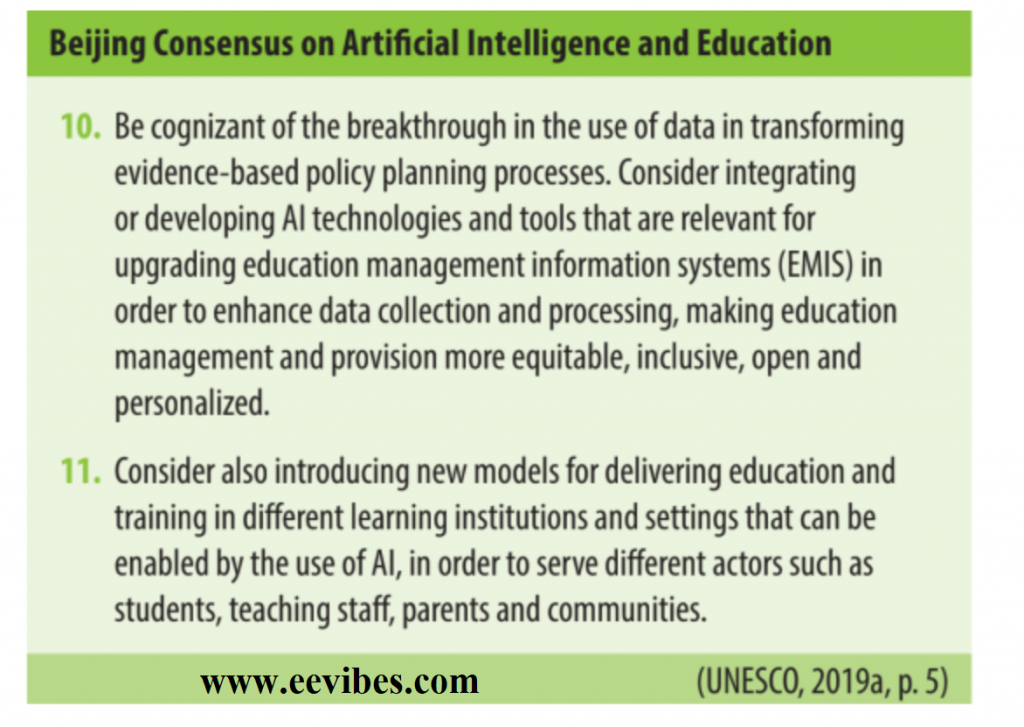
Introduction
What are the benefits of Artificial Intelligence (AI) in education? Machine learning (ML) and artificial intelligence (AI) are important drivers of growth and innovation in all industries, including education. In the next three years, upwards of 47% of learning management products will include AI capabilities, according to eLearning Industry.
While AI-powered solutions have been around for a while in the EdTech field, the industry has been sluggish to embrace them. The pandemic, on the other hand, changed the scene dramatically, pushing educators to rely on technology for virtual instruction. Now, 86% of educators believe that technology should be an integral element of education. AI has the potential to improve both learning and teaching, assisting the educational industry in evolving to benefit both students and teachers.

What Benefits Students Can take from AI?
When broken down, a student’s purpose is straightforward: get a degree or credential that verifies their expertise. By expediting the educational process, AI can assist students in achieving this goal. AI can have a huge impact on students’ educational journeys by offering access to the relevant courses, enhancing contact with teachers, and freeing up more time to focus on other aspects of life. Here are a few examples:
Personalization
Personalization is one of the most prominent educational trends. Students now have a personalized approach to learning programs thanks to AI, which is based on their own unique experiences and interests. To ensure that students get the most out of their education, AI can adjust to their level of expertise, learning speed, and intended goals. Furthermore, AI-powered systems can examine students’ previous learning histories, detect shortcomings, and recommend courses that will help them develop, allowing for a highly personalized learning experience.
Tutoring
While it is typical for kids to seek additional assistance outside of the classroom, many teachers do not have the time to aid students after school. In these situations, AI instructors and chatbots are ideal solutions. While no chatbot can completely replace a teacher, AI tools can assist students in honing their skills and improving weak areas outside of the classroom. They provide a one-on-one learning experience without the teacher being available at all hours of the day to answer queries. An AI-powered chatbot, for example, can respond to student questions in 2.7 seconds.
Quick responses
Nothing is more aggravating than asking a question and receiving a response three days later. On a daily basis, teachers and instructors are inundated with the same questions. Through support automation and conversational intelligence, AI can assist students get solutions to their most frequently asked questions in seconds. This not only saves time for instructors, but it also saves time for students who are looking for answers or waiting for a response to their inquiries.
Learning is accessible to all students, at any time and from any location, thanks to AI-powered technologies. Each student learns at their own pace, and kids can experiment with what works best for them without having to wait for an educator. Furthermore, students from all over the world can receive a high-quality education without having to pay for travel or living expenses.
Educators Can Benefit from AI
Given the quantity of activities on their daily to-do lists, most instructors and staff aren’t hesitant to confess they struggle with time management. Educators want to spend more time one-on-one with students, conducting research, and continuing their own education, but they don’t have the time. By automating chores, assessing student performance, and eliminating the educational gap, AI can help educators save up time. This is how:
Personalization
AI can tailor learning courses for students, and it can do the same for educators. AI can give teachers a clear image of which subjects and lessons need to be reevaluated by studying students’ learning capacities and history. Teachers can use this information to design the optimal learning program for all pupils. Teachers and lecturers can tailor their courses to meet the most prevalent knowledge gaps or issue areas before a student falls too far behind by studying each student’s particular needs.
Answering inquiries
AI-powered chatbots can answer a range of generic and repetitive queries students commonly ask without involving a faculty member, thanks to access to a school’s comprehensive knowledge collection. By removing the educator from the equation, AI allows them to devote more time to class planning, curriculum research, and enhancing student engagement.
Task automation
Artificial intelligence (AI) has the ability to automate even the most monotonous jobs, such as administrative labor, grading papers, measuring learning patterns, and responding to general questions. Teachers spend 31% of their time organizing courses, grading tests, and doing administrative tasks, according to a Telegraph poll. Teachers can automate manual activities with support automation solutions, leaving more time to focus on teaching core competencies.

Edtech has advanced tenfold, from online textbooks to entirely remote lectures. AI is now used to assist students and teachers in optimizing and automating both learning and teaching tasks. We will witness enhanced learning outcomes for all students and instructors as the AI sector grows and innovation takes center stage.
Also read here